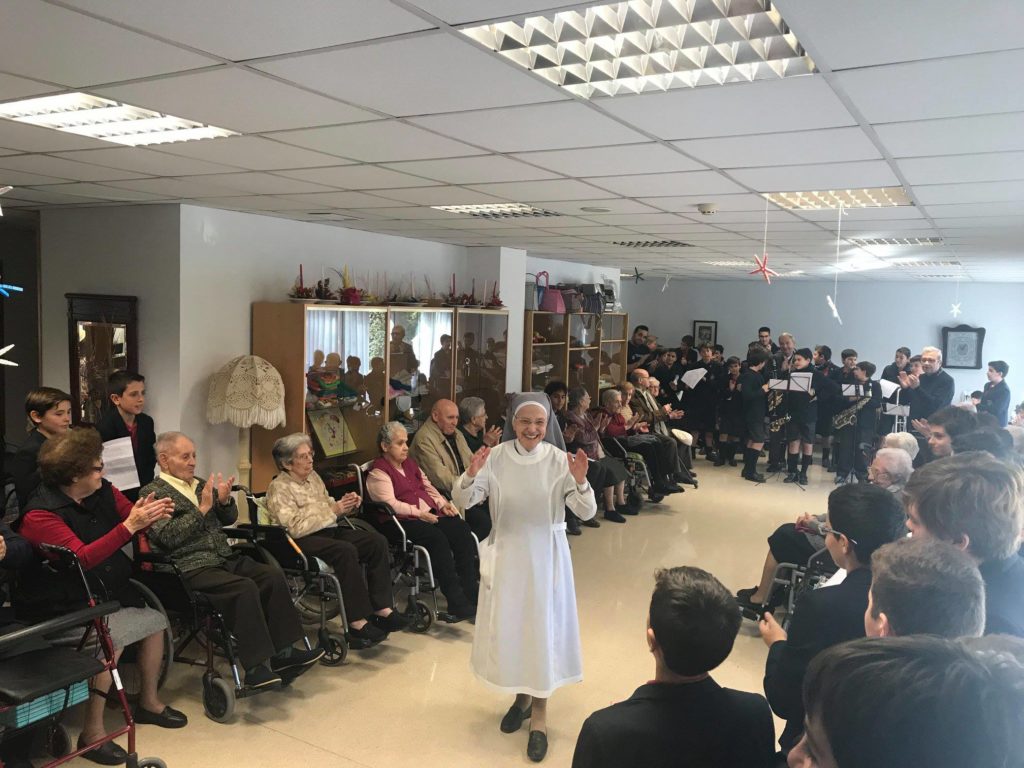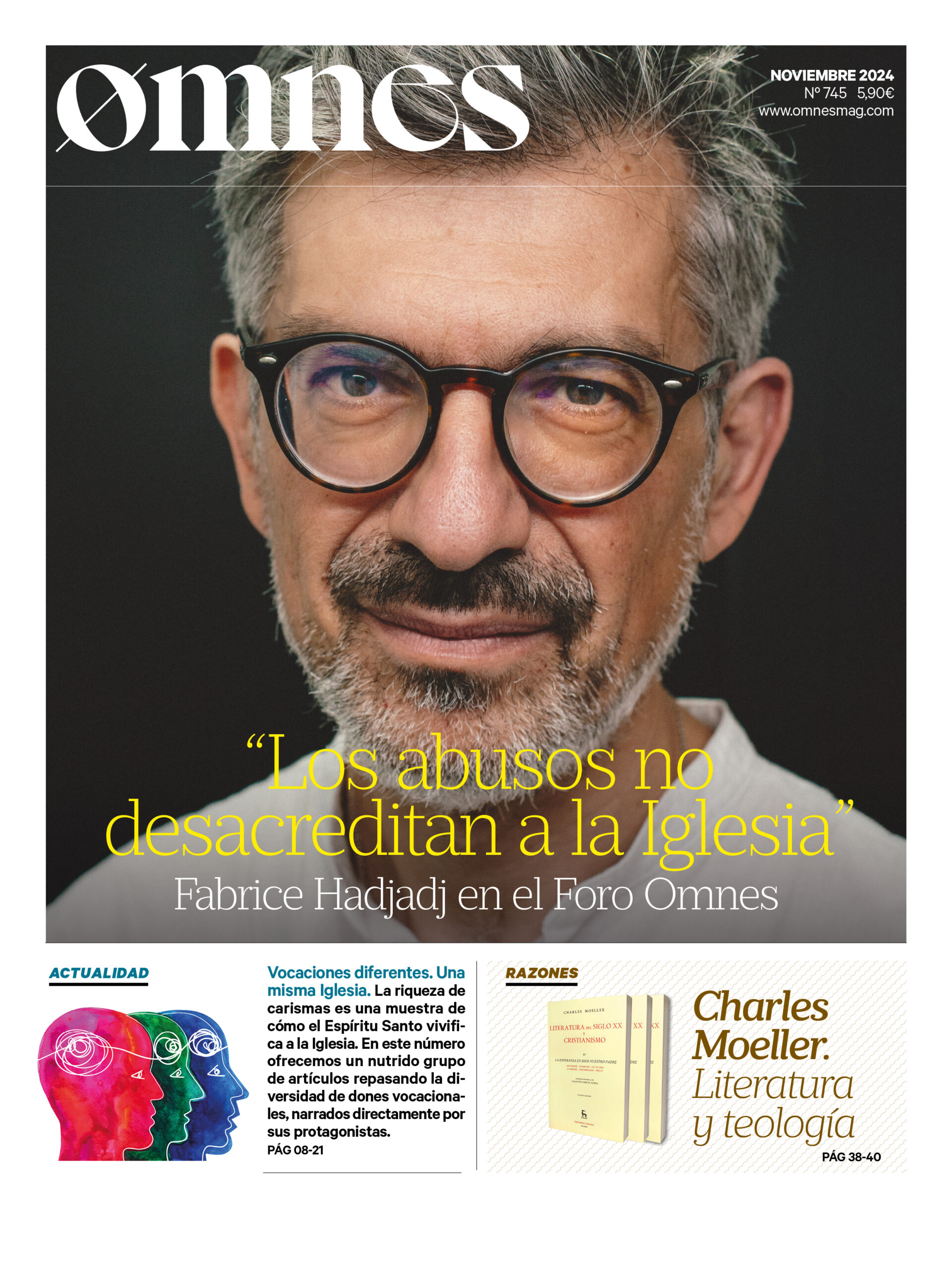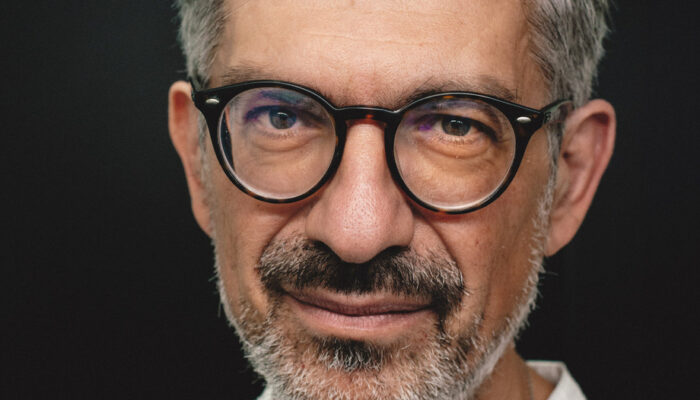People tend to be fickle, and journalists are not far from that fickleness, understood as inconstancy, or tendency to change, as the dictionary says.
The comment comes from the report that opens the newspaper Xtantos The report is published by the Secretariat for the Support of the Church of the Spanish Episcopal Conference, and can be found in parishes. The title of the report is Support point: against the loneliness of the elderly.
The task is a beautiful one. More than three hundred people benefit and more than sixty volunteers are behind this work for the benefit of the elderly, who have found in their parishes a place to combat loneliness, thanks to an initiative of the Capuchin Fathers of Gijon.
It is good to see this and many other initiatives that try to alleviate the loneliness of so many people. In the spring of last year, loneliness became the focus of media attention when the British government took the decision to create a ministry or secretary of state for loneliness because of the large number of English people who live alone. Specifically, more than nine million people, both old and young. Around 13.7 percent of the population.
Palabra echoed the news, and published an extensive work on loneliness. Because experts say that other nations, including Spain, are moving in the same direction. But time goes by, and it seems that nobody remembers the elderly. But it only seems that way. The Church, the Catholics, do, as we have just seen, through this and many other initiatives, both ecclesiastical and civil.
Unemployed, migrants, prisoners
The same thing often happens with the drama of unemployment. On days like these, the media is full of figures. For example, in Spain there are more than 3.3 million unemployed, 14.7 percent of the population, according to the National Statistics Institute (INE). Have we thought about their suffering and how their families live, or rather, survive? Surely we have. But it is also true that time goes by and we forget that suffering, until a new cataract of data appears again.
However, there are numerous institutions of the Church that do not forget these data, because behind them they see suffering faces. And they do a work, so often silenced, that tries to alleviate this drama, regardless of race, sex, religion, ideology or social condition. For example, Caritas has long been developing insertion workshops for the labor excluded, which is almost the same as saying social. In the November issue, Palabra reported in a report on the commitment to the underprivileged of Banco Sabadell's ethical fund, which helps social projects abroad and in Spain. Some of them focused on the dioceses of Coria-Cáceres, Asidonia-Jerez and Seu de Urgell.
Field hospital
And what about the many thousands of people with diseases such as ALS, Alzheimer's, Parkinson's, tumors of all kinds? And of people in prison who hardly or never receive visits? Or families of migrants who fled misery and hunger in their countries, or cannot find a minimum of accommodation in the country of destination?
When Pope Francis referred to the Church as a "Church of the field hospital did not refer only to material needs, that is, to what could be considered corporal works of mercy, but also, and perhaps primarily, to spiritual needs. But in any case to all of them. This is how he expressed himself in February 2015 in Santa Marta: "This is the mission of the Church: the Church that heals, that cures. I have sometimes spoken of the Church as a field hospital. It is true: how many wounded there are, how many wounded, how many people need to have their wounds healed! This is the mission of the Church: to heal the wounds of the heart, to open doors, to liberate, to say that God is good, that God forgives everything, that God is Father, that God is tender, that God is always waiting for us".
Created "in the image of God"
We should, therefore, as far as possible, update our commitment to care for others, who are so often excluded and in need. As far as we are concerned, the question could be posed as follows: If I don't do it, who will? The examples cited, and many others, allow us to reflect a little more on our role as Christians in the support of the Church.
Because the possibility of meeting so many people's needs depends on it on so many occasions. Each one of them has been created "in the image of God", so "The human being has the dignity of a person; he is not just something, but someone. He is capable of knowing himself, of possessing himself and of giving himself freely and entering into communion with other persons, and is called, by grace, into a covenant with his Creator."as stated in the Compendium of the Social Doctrine of the Church (n. 108).
Example of the Pope
How many times have we seen or read that Pope Francis goes out on Friday or Sunday afternoons to visit the poor and the sick, or prisoners, in the vicinity of St. Peter's, or in places farther away from Rome. He could dedicate himself to reading or resting, he has already made a few trips this year, and he is 82 years old. But he leaves his couch and walks the streets. A few months ago, Ecclesia reported on this transfer of the Holy Father: "Pope Francis visits field hospital in Vatican square".
"It was around 4:15 p.m. when Pope Francis walked, by surprise, through the columns of St. Peter's Square. From Casa Santa Marta he went to the medical clinic that will provide assistance to the poor, on the occasion of the next World Day dedicated to them on November 18".
"A surprise from the Pope for all the doctors and nurses who from last Monday until next Sunday offer assistance to the homeless, to the needy, to migrants. All medical consultations are free of charge. Francis, as he did last year with the mini-hospital set up in St. Peter's Square for the same reason, wanted to visit them and thank them personally for this service from which more than 200 people have already benefited in these five days".
Church on the way out
Already in the Apostolic Exhortation Evangelii gaudiumPope Francis targeted this program: "The Church 'going out' is a Church with open doors. Going out to others to reach out to the human peripheries does not imply running into the world aimlessly and without meaning. Often it is rather stopping the pace, putting aside anxiety to look into the eyes and listen, or renouncing urgencies to accompany those who are left by the side of the road. Sometimes it is like the father of the prodigal son, who keeps the doors open so that, when he returns, he can enter without difficulty".
And further on, he referred to the temptation to watch the bulls from the sidelines: "Sometimes we are tempted to be Christians by keeping a prudent distance from the Lord's wounds. But Jesus wants us to touch human misery, to touch the suffering flesh of others. He expects us to renounce seeking those personal or communal shelters that allow us to keep our distance from the knot of the human storm, so that we may truly accept to enter into contact with the concrete existence of others and know the power of tenderness. When we do so, life always becomes wonderfully complicated and we live the intense experience of being a people, the experience of belonging to a people".
Almost 5 million Spaniards served
Many Christians realize and perceive the immense work that the Church carries out throughout the world in favor of so many millions of people. Many Spaniards value the Church's contribution to the support of the welfare state. "All that social work does not appear in the statistics and is so basic and nuclear that sometimes we are not aware of it, but if it did not exist it would be a suffocation for society because there would be many more lonely and abandoned people."said Alejandro Navas, professor of sociology at the University of Navarra, in a report published by Laura Daniele in ABC.
"The real presence of the Church in the midst of society is indisputable. Of all the institutions that work for others, the Church is the one that carries the most weight. Without this social work that reaches millions of people, society as we know it today would be unsustainable." Fernando Fuentes, director of the Social Pastoral Commission of the Spanish Episcopal Conference (CEE), told the newspaper.
In fact, the Church manages to cover the basic needs of 4.8 million Spaniards every year, around 10 percent of the population, and its social and assistance centers have increased by 71 percent. There is a Caritas office in almost every neighborhood, and its more than 80,000 volunteers provide daily assistance to 1.5 million vulnerable citizens.
More statements in favor of the X
Proof that Spanish society values the work of the Church is the increase in the number of people who mark the X on their income tax return, according to EEC officials on February 5.
These are the most relevant data of the 2017-2018 tax allocation: increased by more than 51,000, the declarations marking the X in favor of the Catholic Church; increased by 51.658 the number of declarations in which the X for the Church was marked, mostly new contributors; taxpayers allocated to the Church 267.83 million euros, 11.6 million more than in 2017, an increase of 4.4 % over the previous year, and the highest figure since the beginning of the current tax allocation system in 2007. In summary, one third of taxpayers mark the X in favor of the Catholic Church (33.3 %).
Practical information and transparency
With the tax allocation made by Spaniards, the Catholic Church now has more resources for the service it provides to society in its religious, spiritual and social dimensions, reports the portal https://www.portantos.es/, which can resolve any doubts on the X question.
The spokespersons of the EEC wanted to thank the collaboration of all those who contribute to this mission with the gesture of marking the X, as well as those who help in the other campaigns carried out throughout the year or support it with their personal collaboration in time and prayer, because "The religious, spiritual and social work at the service of millions of Spaniards is thus sustained".
Likewise, the Church maintains its effort to publicize the mechanism by which taxpayers can decide to allocate a small part of their taxes, the 0.7 %, to the Catholic Church and other purposes of social interest. With this decision, the taxpayer does not have to pay more, nor does he/she receive less back.
Moreover, in order to emphasize transparency, the Spanish Episcopal Conference presents an annual Activity Report where it is clearly published what the money in the Church's Income Tax Declaration box is used for; how the money is distributed among all the Spanish dioceses from the Interdiocesan Common Fund, and what is the broad work of the Church. Since 2011 this data has been endorsed by the auditors Price Waterhouse Coopers.
In addition, the EEC has recently renewed the collaboration agreement with the NGO Spanish Transparency InternationalThe CEE and the Spanish dioceses are committed to providing management tools, information techniques and supervision to the CEE itself and to the Spanish dioceses.
Regarding some parliamentary criticisms about an alleged favorable treatment in fiscal matters in relation to the Real Estate Tax (IBI), for example, which Palabra has dealt with on several occasions, Fernando Giménez Barriocanal, vice-secretary of economic affairs of the EEC, has stated that "the Church enjoys the same tax regime for property tax, corporate income tax, VAT, transfer tax, inheritance and gift tax and stamp duty as any political party, any trade union or development NGO, or, of course, any other religious denomination". (cfr. Expansion, 31-X-2018).
How does the Catholic Church sustain itself?
The money that the Church receives, and which it devotes to carrying out all its work, within the framework of its purposes -"evangelization, the living of the faith and the exercise of charity", as stated in the Annual Report of Activities of the Catholic Church in Spain of the year 2016-, has different origins: the direct contributions of the faithful, either by means of collections or donations and subscriptions; from inheritances and legacies and also from the tax allocation. The amount received from the percentage of the taxes of the taxpayers who say so is distributed in solidarity from the Interdiocesan Common Fund. And what is this Fund?
The financing of the Catholic Church in Spain is achieved thanks to the Interdiocesan Common Fund, which is, as its name indicates, a common fund from which the funds collected by the Church in the Income Tax Declaration are distributed in solidarity.
This money is distributed in solidarity among all the Spanish dioceses, so that those with fewer possibilities receive proportionally more.
On average, it accounts for 25 % of the basic funding of the dioceses, although it depends on the size of each diocese, so it can account for up to 70 % of the resources of the smallest dioceses. This fund is obtained from two main sources: direct contributions from the faithful and tax allocations.
The direct and voluntary contributions of the faithful are obtained through different channels such as collections, donations, legacies, inheritances. However, EEC sources point to the periodic subscription (monthly, quarterly, half-yearly or annual) as the most desirable model for the support of the Church. Thanks to this periodicity in financing, the budget can be administered in a more efficient way in order to face the different problems that arise day by day in the dioceses.
Direct and voluntary contributions from the faithful are the main source of funding for dioceses and account for more than one third of the available resources. n








